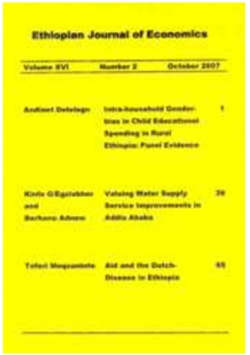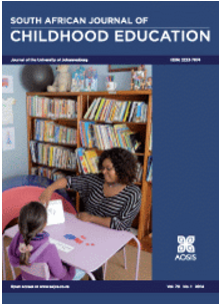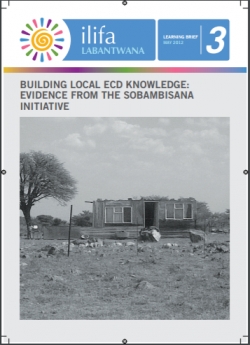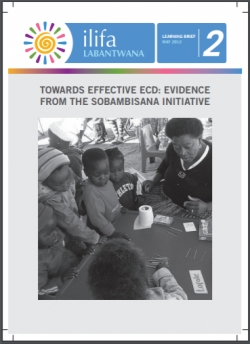Social Science & Medicine 151, February:69-77 Food insufficiency, depression, and the modifying role of social support : evidence from a population-based, prospective cohort of pregnant women in peri-urban South Africa
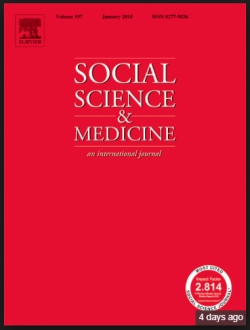
Type
E-Journal
ISSN
02779536
Category
ECCE, Preschool
[ Browse Items ]
Publication Year
2016
Publisher
Elsevier, Amsterdam, Netherlands
URL
[ private ]
Pages
9 p.
Subject
Early childhood care and education (ECCE), Pregnant women, Depression, Food insufficiency, Social support, South Africa
Tags
Abstract
RATIONALE:
Food insecurity has emerged as an important, and potentially modifiable, risk factor for depression. Few studies have brought longitudinal data to bear on investigating this association in sub-Saharan Africa.
OBJECTIVE:
To estimate the association between food insufficiency and depression symptom severity, and to determine the extent to which any observed associations were modified by social support.
METHODS AND RESULTS:
We conducted a secondary analysis of population-based, longitudinal data collected from 1238 pregnant women during a three-year cluster-randomized trial of a home visiting intervention in Cape Town, South Africa. Surveys were conducted at baseline, 6 months, 18 months, and 36 months (85% retention). A validated, single-item food insufficiency measure inquired about the number of days of hunger in the past week. Depression symptom severity was measured using the Xhosa version of the 10-item Edinburgh Postnatal Depression Scale. In multivariable regression models with cluster-correlated robust estimates of variance, lagged food insufficiency had a strong and statistically significant association with depression symptom severity (β = 0.70; 95% CI, 0.46-0.94), suggesting a 6.5% relative difference in depression symptom severity per day of hunger. In stratified analyses, food insufficiency had a statistically significant association with depression only among women with low levels of instrumental support. Using quantile regression, we found that the adverse impacts of food insufficiency were experienced to a greater degree by women in the upper end of the conditional distribution of depression symptom severity. Estimates from fixed-effects regression models and fixed-effects quantile regression models, accounting for unobserved confounding by time-invariant characteristics, were similar.
CONCLUSIONS:
Food insufficiency was associated with depression symptom severity, particularly for women in the upper end of the conditional depression distribution. Instrumental social support buffered women against the adverse impacts of food insufficiency.
Food insecurity has emerged as an important, and potentially modifiable, risk factor for depression. Few studies have brought longitudinal data to bear on investigating this association in sub-Saharan Africa.
OBJECTIVE:
To estimate the association between food insufficiency and depression symptom severity, and to determine the extent to which any observed associations were modified by social support.
METHODS AND RESULTS:
We conducted a secondary analysis of population-based, longitudinal data collected from 1238 pregnant women during a three-year cluster-randomized trial of a home visiting intervention in Cape Town, South Africa. Surveys were conducted at baseline, 6 months, 18 months, and 36 months (85% retention). A validated, single-item food insufficiency measure inquired about the number of days of hunger in the past week. Depression symptom severity was measured using the Xhosa version of the 10-item Edinburgh Postnatal Depression Scale. In multivariable regression models with cluster-correlated robust estimates of variance, lagged food insufficiency had a strong and statistically significant association with depression symptom severity (β = 0.70; 95% CI, 0.46-0.94), suggesting a 6.5% relative difference in depression symptom severity per day of hunger. In stratified analyses, food insufficiency had a statistically significant association with depression only among women with low levels of instrumental support. Using quantile regression, we found that the adverse impacts of food insufficiency were experienced to a greater degree by women in the upper end of the conditional distribution of depression symptom severity. Estimates from fixed-effects regression models and fixed-effects quantile regression models, accounting for unobserved confounding by time-invariant characteristics, were similar.
CONCLUSIONS:
Food insufficiency was associated with depression symptom severity, particularly for women in the upper end of the conditional depression distribution. Instrumental social support buffered women against the adverse impacts of food insufficiency.
Description
Article
URL directs the user to the open access version at the National Library of Medicine, Bethesda, MD. The link to Elsevier is for subscribers only.
URL directs the user to the open access version at the National Library of Medicine, Bethesda, MD. The link to Elsevier is for subscribers only.
Number of Copies
1
| Library | Accession No | Call No | Copy No | Edition | Location | Availability |
|---|---|---|---|---|---|---|
| Main | 747 | 1 | Yes |

